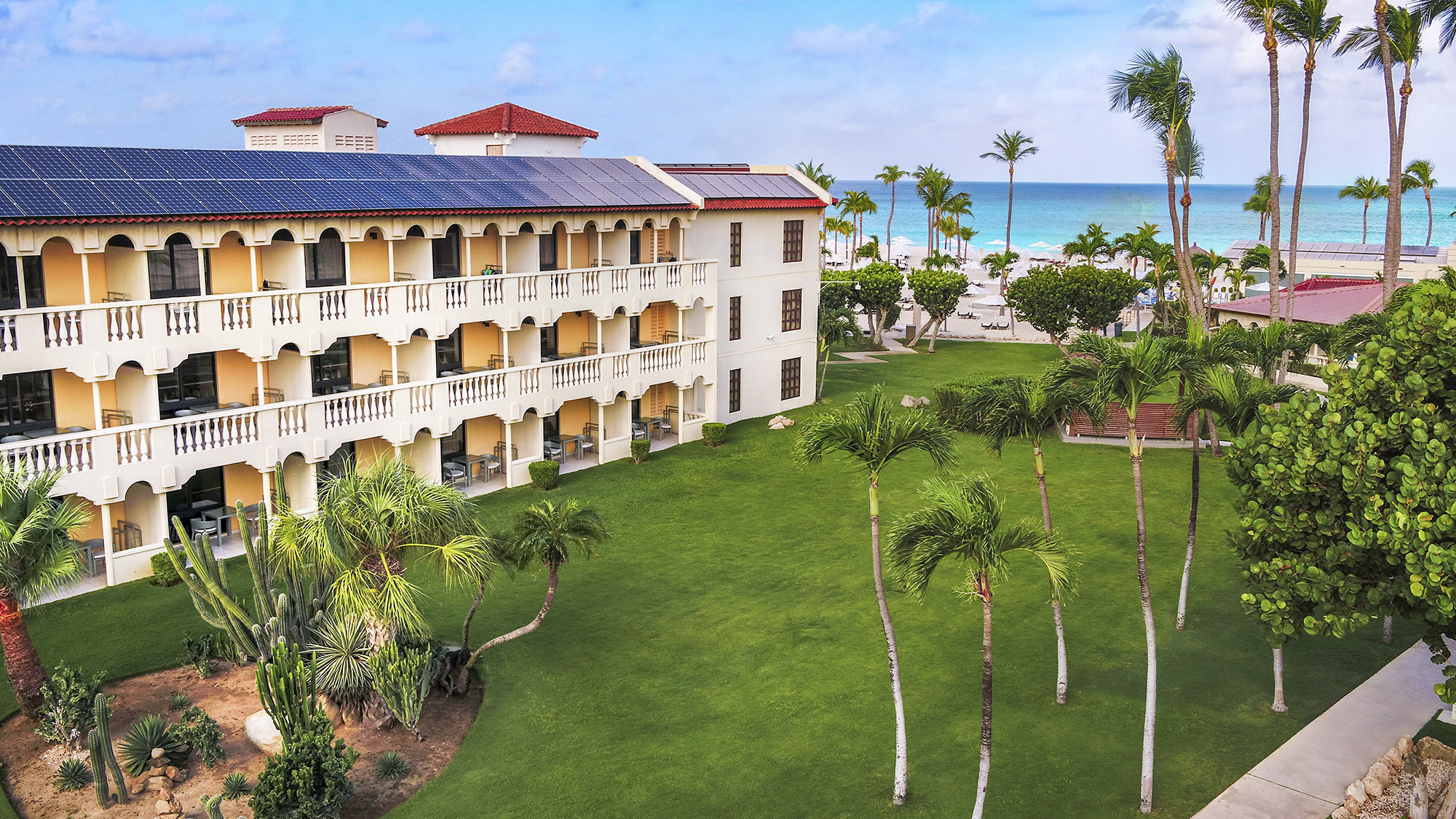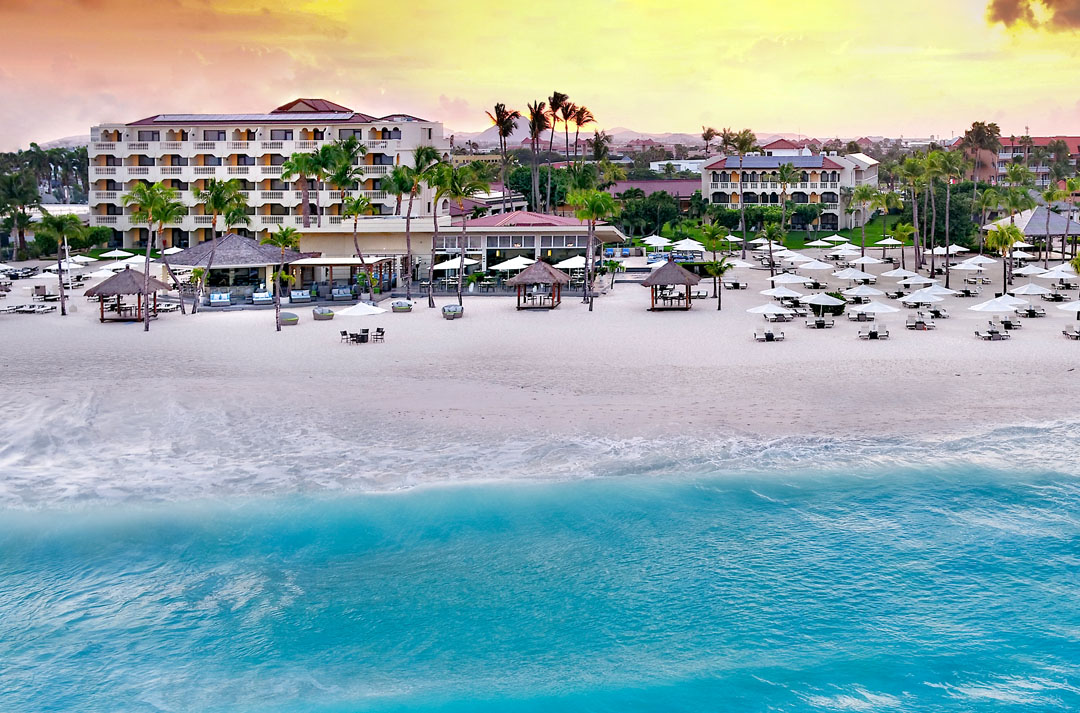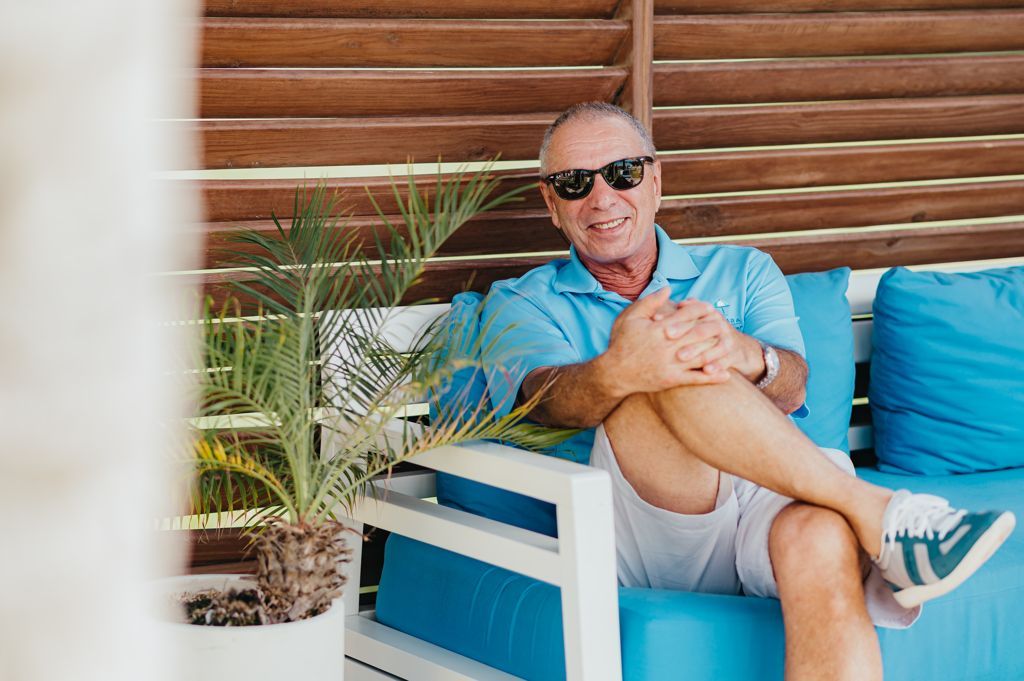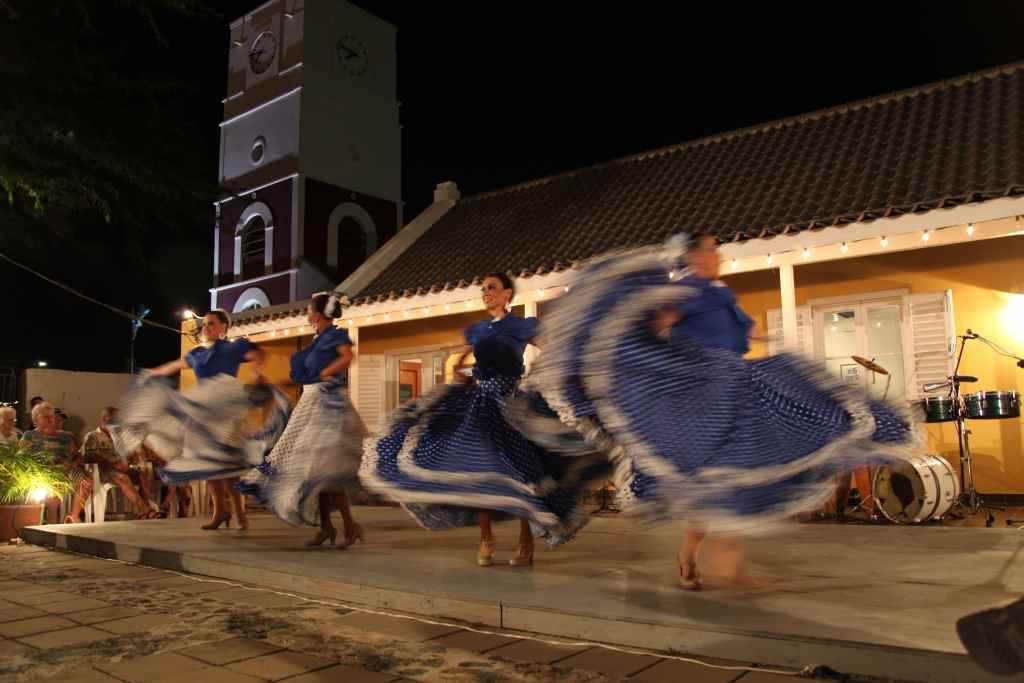A while ago, on a tour of Bucuti & Tara Beach Resorts, the song ‘The Circle of Life’ randomly popped into my head. Like many unsolicited earworms, the song stayed with me until I managed to figure out why Elton John was haunting my brain. Walking across the gorgeous grounds, while Bucuti’s environmental compliance officer explained the lay of the land to me, I felt a sense of absolute harmony between man and nature. On that occasion, I wrote this article which details the incredible lengths Bucuti & Tara went through to achieve ‘carbon neutrality’. However, it wasn’t until much later that I realized why that song was stuck in my head: Bucuti & Tara is a microcosm of sustainability – a beacon of environmental enlightenment in an age fraught with climate uncertainty.

Bucuti & Tara was founded in 1987 – a time when most of the Western world was using copious amounts of AquaNet hairspray and single-use plastic with reckless abandon. The world had only just begun to realize the extent of human’s negative impact on the Earth and phrases like ‘climate change’ and ‘CO2 emissions’ were reserved for those with a background in science or conservation. By the mid 1990’s, environmental awareness was slowly spreading across the globe and these days, we have irrefutable proof that man’s actions have a negative effect on our planet.
Since the last time I wrote about Bucuti’s accomplishments, they’ve received several more, including (but not limited to); snagging a coveted Green Globe Certificate for the 20th consecutive year, receiving a perfect Green Globe 2020 score (making Bucuti the greenest resort in the world), the Society of American Travel Writer’s prestigious Phoenix Award, a recurring place on Conde Nast’s Traveler’s Magazine’s list of the 40 Best Hotels in the Caribbean and, perhaps most impressively, Bucuti and Tara was the first hotel to receive the United Nations’ ‘Climate Neutral Now’ award. Discover more of Bucuti & Tara’s honors and accomplishments here.
On top of all of that, Bucuti’s CEO, Ewald Biemans, was recently given an incredible honor for his years of service to the Aruban community. The stretch of highway that runs past Bucuti & Tara, now bears his name. Recently, I had the privilege of chatting with Mr. Biemans and it might surprise you to learn that the man behind all of the aforementioned accolades is every bit as humble as he is forward-thinking.

Ewald Biemans was born in a world very different from the one we know today. The dust of the second world war had barely settled on Austria when Ewald Biemans was born in 1945. High in the Austrian mountains, on a little farm, Ewald learned lessons in his early childhood that deeply impacted his core belief: if you care for the land, it will care for you in return. Tending crops and animals was more than a way of life for Ewald’s family – it was a matter of survival. His youthful days were filled with satisfying chores and his evenings spent gazing, with wonder, at a night sky full of sparkling stars.
Ewald’s path to Aruba was a winding one. At age 16, he left Austria for South America where he began a career in the hotel industry. He ‘hotel hopped’ for a few years after that, working in various hotels in South America and Europe. Then, as fate would have it, Ewald decided to spend a vacation on a beautiful, little island most people, at that time, had scarcely heard of: Aruba.
Like so many tourists, Ewald fell in love at first sight with Aruba. At that time, there were very few hotels on the island. Approximately 15,000 tourists visited the island annually (as opposed to the million+ who visited in 2019). The island was a very different one than you’ve all come to know and love before tourism became Aruba’s primary export in the 1980’s. Ewald is one of the few hoteliers on Aruba who can tell you where everything ‘didn’t used to be’. He spent two years working at the Hilton before deciding to earn a degree in International Business from Florida State University. Upon graduation, Ewald returned to Aruba and put down roots on the island he’d chosen for his home.
Ewald’s career grew right alongside Aruba’s tourism industry. However, within a few years, the dark underbelly of the tourism boom began to expose itself. Massive construction projects and an influx of both workers and tourists left a blight on Aruba’s once pristine landscape. Ecosystems were ravaged by bulldozers, buildings grew faster than trees and Ewald realized that the trajectory of the island was unsustainable. He decided to do something about it, so on October 19th 1987, Bucuti & Tara opened its doors and began the gradual process of ushering in a new age of sustainable tourism in Aruba.

Since then, Ewald has created an oasis of conservation at Bucuti & Tara. Named after Ewald’s favorite coral reef (Bucuti) and the Sanskrit word for star (tara), Bucuti & Tara truly serves as a bright point of environmental navigation for the island. Aside from being carbon negative, Bucuti has launched educational and social programs that benefit all of Aruban society. Ewald Biemans has become something of a green guru, offering keen insights into sustainable tourism for other hotels and introducing local initiatives such as pet sterilization and beach clean-ups. This year, in celebration of his 75th birthday, Ewald and a group of merry conservationists spent the day planting trees.
Bucuti & Tara: 2020
This year has upended life as we all know it. From raging wildfires to a hyperactive hurricane season, it’s become increasingly obvious that the Earth is crying out for help from her most invasive species – human beings. Those events, as devastating as they’ve been to watch unfold, pale in comparison to the havoc caused by a tiny virus that jumped species early this year.
The advent of the Novel Coronavirus has cast the fragility of modern-day society in sharp relief. You’d be hard-pressed to find an industry that hasn’t been negatively affected by Covid – 19, a fact that’s especially true for the travel industry. Aruba’s tourism-based economy was particularly decimated, earlier in the year, by travel bans and lockdowns. Bucuti & Tara was one of the few hotels that never closed its doors completely. It turns out that many of Bucuti’s environmental protocols gracefully translated into pandemic compliance.
During the lockdown, Bucuti played host to stressed-out frontline workers and when Aruba’s borders reopened Bucuti and Tara, at partial capacity, was ready to get back to the business of providing the very best, eco-friendly vacation experience on Aruba. Bucuti’s post-pandemic guests rave about the level of safety they feel during their stay.
Ewald Biemans doesn’t consider himself a visionary but you’d be hard-pressed to find anyone in Aruba who agrees with him about that. Bucuti and Tara has become a flagship for sustainable tourism in the Caribbean. During these uncertain times, Bucuti and Tara remains a guiding star that illuminates a bright path toward a more sustainable future.





